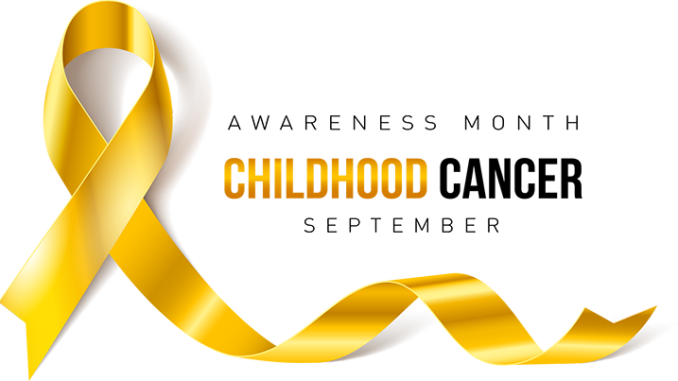
RALEIGH — The three state legislators representing Stanly County, Republicans Sen. Carl Ford, Rep. Wayne Sasser and Rep. Ben Moss, have sponsored a bill to make September “Childhood Cancer Awareness Month” in North Carolina. The three were inspired to make the move because of local families who have lost children to the disease, including the Thompson family in Locust.
Ford is primary sponsor of the Senate version, S.B. 80, and Sasser and Moss are primary sponsors of the House version, H.B. 89. In the language of the bill, it cites the fact that “childhood cancer is the number one disease-related killer of children in the United States.” It says that “1 in 285 will be diagnosed with cancer before the age of 20,” and of these,“1 in 5 children are terminal at diagnosis.”
Sasser spearheaded the effort to get the bill introduced in the House and then asked Ford to introduce an identical “companion” in the Senate, a common way of making legislation pass through the two chambers more smoothly.
“There’s a local family, the Thompsons, who had a little 4-year old who had developed DIPG, which is a brain stem cancer,” Sasser told SCJ. “There is no cure for it; it’s terminal, and he made it like 360-days after he was diagnosed. That was one of the four or five childhood cancer cases we had in Stanly County that started this.”
He said September is the national childhood cancer month and Stanly County had adopted that back in 2019. That year, they made childhood survivors of cancer the grand marshals of the Albemarle Christmas parade, with about a dozen children participating.
“Those kids had survived cancer, but we can’t forget the kids who didn’t survive,” Sasser said. “Because that just shows we haven’t done enough. It breaks your heart.”
The family that Sasser mentioned, the Thompsons, have started the Warrior Jace Foundation to combat DIPG after their son passed. Jace’s father, Eric, and mother, Jennifer, both work in law enforcement and received a lot of support during their son’s painful fight with the disease.
The Warrior Jace Foundation has since been very active in raising money and awareness. Sasser said they had a kickball tournament in Locust with about 20 teams in 2020 and many other events and fundraisers.
“They’ve had motorcycle rides, bicycle rides and they’ve got a raffle for a small motorcycle, and they’ve raised a lot of money that way.”
Sasser has tried to be involved with the Thompsons and their work, saying he even brought Jennifer to Raleigh in early 2019 to speak in front of a cancer support group.
“She got up and gave her heartfelt speech, and when she was done — two things — number one, there wasn’t a dry eye in the crowd, and number two, she got a standing ovation,” Sasser said.
He said that event opened up other speaking opportunities for her: “She’s really passionate about what she does and goes all out.”
Ford told SCJ that when Sasser asked him to create a companion bill in the Senate, he thought, “Oh, man — this is a good idea, because people aren’t thinking about it and aren’t talking about it. So maybe this will help.”
Then, Ford said he took a closer look and was moved by what he was reading.
“When you read the bill and you read those stats on it — oh my,” Ford said. “I immediately started thinking about my grandchildren, thinking, I don’t know if I could handle this or not. It’s pretty scary.”
The bill says that childhood cancer is “on the rise with an estimated 15,700 children each year or 43 per day diagnosed with cancer in the United States alone.” It says seven of those 43 will die, and the average age of death is eight. Only 5% of the National Cancer Institute’s budget is dedicated solely to research for childhood cancers, and only two drugs for childhood cancers have been approved over the last 25 years.
“I’m proud of the bill; it’s a relevant bill,” Sasser said. “And we need to take some time and think about what we need to be doing to fix the problem. And it takes some money to do that.”
